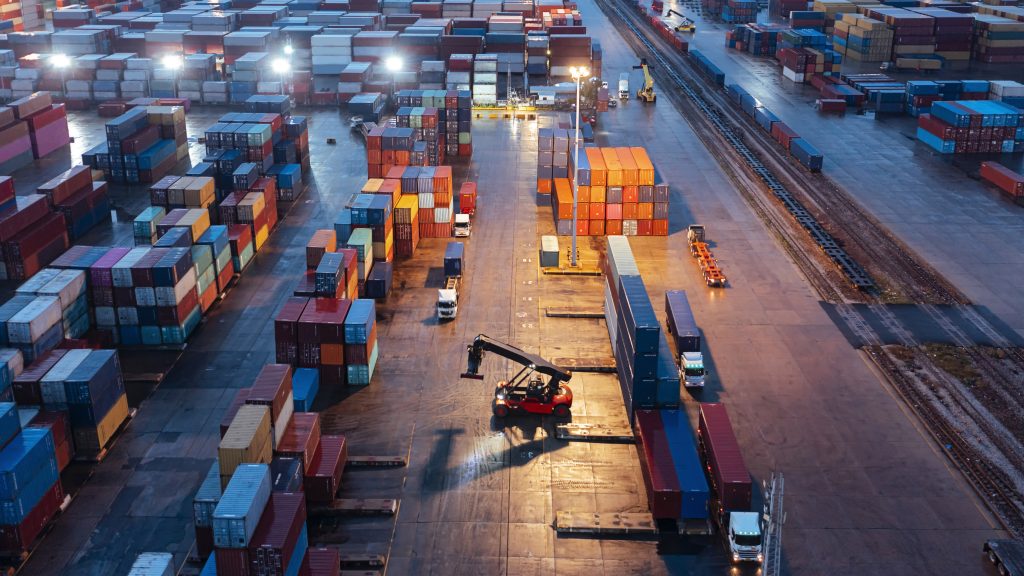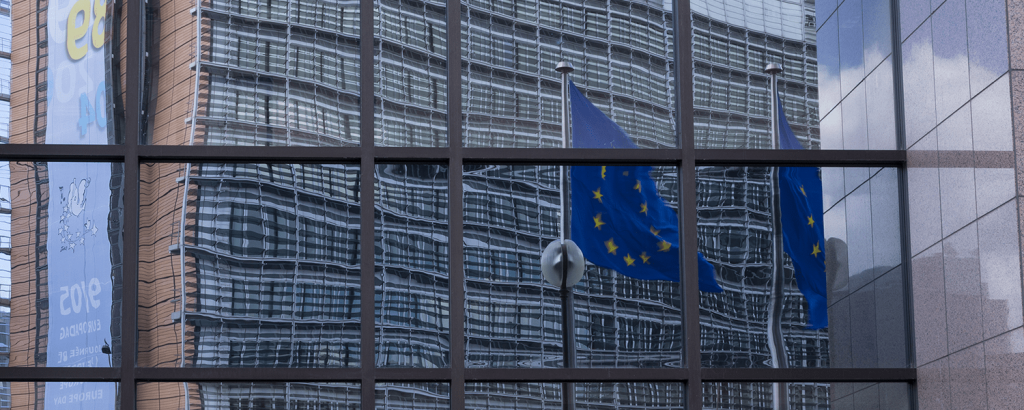
Tax compliance and incentives during martial law in Ukraine
Tax compliance and incentives during martial law in Ukraine
A crucial number of Ukrainian companies (including subsidiaries of international enterprises) experienced negative business and financial impacts as a result of the Russian invasion of Ukraine which started on 24 February 2022.
The urgent relocation of staff to other regions of Ukraine and abroad, interruption of access to internal databases, IT systems, and paper documents (accounting and legal), loss of premises, raw materials, and product stocks, manufacturing assets and facilities, loss of established business connections – are a small sample of the consequences that these businesses have faced.
After the war started, the Ukrainian authorities reacted quickly to stabilise the economy and support businesses. Several laws and regulations were adopted immediately, providing tax relief and benefits for businesses. However, the Government also imposed some significant limitations and restrictions.
Listed below are the main restraints, as well as tax reliefs and simplifications effective in Ukraine as of 4 May. Please note that most of the changes listed below were established for the period of martial law and may be cancelled or prolonged depending on the development of the situation in Ukraine.
Restrictions and limitations
The significant regulations which have the most severe impact on business activities are the following:
- The Ukrainian Hryvnia (UAH) to US$ exchange rate is fixed as of 24 February 2022 at a rate of around 0.034US$ to 1 UAH and is further used as a base for computation of the exchange rates of UAH to other currencies.
- Ukrainian entities are not allowed to transfer currency from Ukraine (e.g. arranging payments abroad) except for payments of critical imports (as per the list of certain goods approved by the Government), separate transactions approved by the National Bank of Ukraine, and other industry or military specific exemptions.
- The VAT refund procedure is on hold. Also, the electronic system of VAT administration is suspended, however, companies are allowed to determine VAT obligations and credit based on respective accounting and legal documents confirming the transaction.
- Any payments, repayments of debts, disposition of intangible assets, estates, vehicles, aircraft, etc. to entities registered in Russia or Belarus are prohibited.
- The state registers are working on a restricted basis: corporate changes in capital, changes of founders (participants) and/or the nominal value of their shares, and transactions with real estate are limited by regions and could be performed only by selected notaries (as per the list approved by the Ministry of Justice of Ukraine).
Tax reliefs and simplifications
The following reliefs and simplifications were implemented to provide support to businesses during the period of martial law:
- The possibility to apply a simplified taxation system was extended for large taxpayers. The reduced tax rate of 2% of the turnover will substitute the Corporate Profit Tax (CPT at 18%) and Value Added Tax (VAT at rates of 20%, 14%, 7%, and 0) for companies that applied for this regime.
- VAT exemption on import of goods into the customs territory of Ukraine by companies applying a simplified tax system.
- The import of cars and other vehicles by individuals is exempt from VAT and excise tax.
- Exemption from the annual ownership tax on real estate and immovable property located in areas of hostilities or temporarily occupied territories.
- Ecology taxes are not charged for the period of 2021 and up to the end of the year when martial law is cancelled.
- Taxpayers (including legal entities, private entrepreneurs, and individuals) are allowed to submit reporting documents and statements covering their own personal tax affairs within 6 months after the cancellation of the martial law.
- The term of validity of the various licenses and permits shall be automatically prolonged for the period of martial law.
- The Tax Authority and other controlling authorities are not entitled to execute audits and reviews of Ukrainian businesses (with some exceptions).
Besides considering the high risks in areas of hostilities, the Ukrainian Government will support the relocation of businesses to the western part of Ukraine. Such support may include assistance in logistics, identification of the new manufacturing facilities, cooperation with the local authorities, etc.
Whereas in the first weeks of the Russian invasion, many Ukrainian companies were paralysed, we may now see signs of renewal of some business activity. We believe that the current Ukraine tax environment will encourage further business development aimed at the reconstruction of Ukraine.
The Mazars in Ukraine team continues to monitor the situation and support clients in compliance, tax, and related legal matters.


Pillar 2 GloBE rules technical series: Navigating adjusted covered taxes
The sixth article of our series on Pillar 2 GloBE model rules focuses on how to identify the key principles of adjusted covered taxes. Adjusted covered taxes is the numerator in the formula for determining the effective tax rate under the main Pillar 2 rules. As well as discussing points such as the definition of […]

Pillar 2 GloBE rules technical series: unpacking and applying GloBE model rule adjustments
Continuing our technical series on Pillar 2 GloBE, article five aims to assess how to determine your Financial Accounting Net Income or Loss (FANIL) by applying the relevant OECD-listed adjustments, alongside a brief overview of other additional adjustments. As discussed in previous articles in this series, calculating any top-up tax liability under Pillar 2 begins […]

Forvis Mazars Sweden tax litigation group: case study
The European Court of Justice (ECJ) holds that the EU Customs Code does not require exceptional circumstances to extend a temporary admission of goods beyond the originally agreed term if the total period of admission does not exceed 24 months. A company was charged duty and VAT for temporarily importing a racing car. On 12 […]

Pillar 2 GloBE rules technical series: understanding how Pillar 2 GloBE impacts tax accounting
Continuing our technical series on Pillar 2 GloBE, this article aims to give an overview of the relationship between tax accounting and Pillar 2 GloBE. As well as highlighting basic accounting principles, the article will summarise issues relating to the computation of the effective tax rate, top-up tax, GloBE income or loss, covered taxes and […]

Next step in DAC9 legislation: council of the European Union reaches agreement on standardisation of GIR
In mid-February, the European Parliament (EP) voted by a majority to adopt the DAC9 legislative initiative. Now, the Council has reached a political agreement on the new EU directive. It acts as the sole legislator and will formally adopt DAC 9 after the revision is completed. The previous proposal by the European Commission primarily aims […]

Pillar 2 GloBE rules technical series: addressing MNE group complexities under Pillar 2 GloBE
Following on from article two in our technical series on Pillar 2 GloBE, this article aims to peel away further layers of how the GloBE rules define MNE groups. In particular, we will look at some of the more complex situations likely to arise in determining an MNE group. As discussed in our previous article, […]

Pillar 2 GloBE rules technical series: understanding MNE group structures through the lens of the GloBE rules
One of the fundamental exercises for in-scope multinational enterprise (MNE) groups subject to Pillar 2 GloBE rules is to gain an in-depth knowledge of constituent entities (CEs) and permanent establishments (PEs) on a country-by-country basis. It is an important task that will help ensure calculations required to determine your top-up tax liability in each jurisdiction […]

Risk management: adding value with a tax control framework
The tax risks facing global organisations increase every year. In the EU alone, data from the European Commission shows there are around 900 double taxation disputes, estimated to be worth €10.5 billion.These figures are likely to continue increasing over the coming years, as governments and tax authorities around the world align their approaches, increase global […]

Pillar 2 GloBE rules technical series: getting to know top-up taxes and safe harbours
With the Organisation for Economic Co-operation and Development’s (OECD) Pillar 2 Global anti-Base Erosion (GloBE) Rules now in play, understanding who, what, and how the regime will impact multinational enterprises (MNEs) is vital. With new OECD guidance being steadily released, keeping abreast of changes affecting how the rules are interpreted and what options an MNE […]

Romania speeds up in the race to improve VAT collection
The Romanian Tax Authorities (RTA) continue racing to reduce the VAT deficit and fraud in respect of VAT collection. According to the latest VAT Gap Report published by the European Commission (see here and here), seven European states remain above the EU median for their VAT gap in 2021. VAT collection remains a significant challenge in Romania, […]

Maximising privately owned business efficiency with a tax control framework
Implementing a tax control framework (TCF) might sound like something only large multinational PLCs need to worry about. But for privately-owned businesses, a tax control framework also offers great opportunity. The risks a TCF guards against may be different in scope for a typical owner-managed business, but there remain significant penalties for the wrong approach. […]

Enhancing business sustainability through effective tax control frameworks
Sustainability challenges have become critical business imperatives in recent years. Regulators, stakeholders, investors, employees, customers – all expect a much higher degree of compliance and transparency. Businesses have got used to their performance in these areas being monitored and to being held accountable for any weaknesses. Although much of the focus on ESG (Environmental, Social […]

Tax transparency on allocation of group profits in the light of Public CbCR
Taxation has a key role for medium and large multinational companies in the process of developing a sustainable business model. Disclosure of complex tax information and transparency on profit allocation to group entities is key to this transformation process and will become a reality with new reporting standards and EU disclosure obligations. The Global Reporting […]

VAT and transfer pricing adjustments: the worst of both worlds?
In due course, the EU Court of Justice (ECJ) may shed some light on the VAT intricacies of transfer pricing (TP) adjustments. In Arcomet, the Bucharest Court of Appeals asked the ECJ whether the amounts included in yearly equalisation invoices to ensure arm’s length pricing within a group constitute payment for VAT relevant services. Should […]

Implementing the right tax control framework
There are two main drivers for organisations looking for advice around tax control frameworks (TCFs). Sometimes it is a proactive strategy to check their tax affairs are in good shape or to better understand any potential liability risks, for example. Alternatively, they may already be aware of tax compliance issues they need to deal with […]

Using CbCR data as a Pillar 2 GloBE starting point
Designed to ensure that multinational enterprises (MNEs) pay a global minimum tax (GMT) of 15% in each jurisdiction where they operate and generate income, the Pillar 2 global anti-base erosion (GloBE) rules are now a reality for in-scope MNEs and very large groups with €750m consolidated global turnover. With some MNEs facing assessments as early […]

How to develop a robust tax control framework for your business
Developing and implementing a tax control framework (TCF) is a strategy being adopted by an increasing number of companies around the world. There is no universal approach to developing a TCF. At Forvis Mazars, based on our wide experience working with a diverse range of companies to implement tax control frameworks, we take a structured, […]

Is a change of tax mindset now needed?
For Singapore and many other countries that have traditionally leant on financial incentives to attract foreign direct investments, the ambition of a 15% minimum global tax presented by Pillar 2 Global Anti-Base Erosion rules (GloBE) heralds a new challenge. While there is little doubt that having a fairer international tax system is a much-needed move, […]

New app from the Mexican Tax Administration Service designed to determine the monthly VAT returns automatically
The Mexican Tax Administration Service (SAT) continues to innovate and invest in technology and artificial intelligence to make it easier and more efficient for taxpayers to file their monthly tax returns. On February 1st, 2024, The Mexican Tax Administration launched a new online platform for filing the monthly Value Added Tax (VAT) returns, which will […]

A basic guide to understanding Pillar 2 GloBE minimum top-up tax rules
As in-scope organisations* embark on a new Pillar 2 Global Anti-Base Erosion (GloBE) journey, having a clearer understanding of how jurisdictions will enact the global minimum 15% tax rule is vital. Notably, while Pillar 2 GloBE sets out model rules on what jurisdictions need to achieve, there is an element of flexibility in how each […]

The benefits of having a tax control framework
Tax control frameworks are becoming increasingly common as companies seek to manage their taxation, compliance, and risk management obligations more effectively and efficiently. So, what is a tax control framework, and what are the benefits? A tax control framework is a set of processes and internal control procedures that ensure a company’s tax risks are […]

UK Spring Budget 2024
The UK Spring Budget on 6 March 2024 was relatively measured in its tax policy decisions, despite a background of falling inflation and rising tax receipts. Below are some areas of interest for globally mobile individuals, those with UK staff, and those with business and investment interests. Main measures affecting individuals Main measures affecting those […]

The right tax approach: why companies need a tax control framework
Across the globe, an increasing number of companies are developing tax control frameworks to help them stay on top of their taxation, compliance and risk management obligations and objectives. These obligations are continually evolving, driven by a combination of both...

Ecological taxes: new updates in Mexico
Several Mexican states had imposed ecological taxes in order to encourage certain industries to reduce their polluting emissions. In addition, green taxes have recently been imposed as a consequence of the warning issued by the Mexico Climate Initiative (MCI) that Mexico’s carbon dioxide emissions could increase by up to 59.8% by 2050 if the country’s green […]

A basic guide to understanding Pillar 2 GloBE minimum top-up tax rules
As in-scope organisations* embark on a new Pillar 2 Global Anti-Base Erosion (GloBE) journey, having a clearer understanding of how jurisdictions will enact the global minimum 15% tax rule is vital. Notably, while Pillar 2 GloBE sets out model rules on what jurisdictions need to achieve, there is an element of flexibility in how each […]

IAS accounting requirements for Pillar 2: GloBE for periods ending 31 December 2023
Background to Pillar 2 (GloBE) Part of the ongoing work of the OECD to combat tax avoidance and targeted at low tax jurisdictions, the Pillar 2 – GloBE rules will apply to large organisations (>€750m of global revenue) with each country having its own rules implementing some form of 15% minimum tax, or otherwise risking […]

Green investments in Austria: new tax allowance introduced effective 2023
When the Austrian government – a coalition between the conservative People’s Party and the Green Party – presented their government program for 2020-2024, an “eco-social tax reform” was one of the key elements. The most recent measure has been the introduction of an investment allowance that especially incentivises “green investments”. The two main pillars of […]

Polish leap in digitisation – mandatory e-invoicing coming soon
Originally, mandatory e-invoicing was supposed to come into effect as early as 2023, but due to the complexity of the application of e-invoicing procedures and objections of entrepreneurs, the deadline was postponed until July 2024. Nevertheless, it should be kept in mind that this is not a distant prospect. As of 1 July 2024, the […]

Preparing for the Carbon Border Adjustment Mechanism (CBAM)
Following the adoption of CBAM by the European Union (EU) parliament, businesses impacted will have a transition period beginning 1 October 2023. If your business imports goods and materials from outside the EU and is in scope of CBAM, you need to prepare as a matter of urgency. Businesses not yet covered by CBAM should […]

How CARF, MiCA, and DAC8 will impact tax transparency in relation to the WEB 3 and other recent web developments
The development of new web communication systems such as WEB3 is making it very difficult for tax authorities to trace taxable transactions. However, measures proposed by the OECD and the European Union aim to provide a framework that will permit traceability of tax transactions. The technical characteristics of a crypto asset make it difficult for […]

Romania’s race to improve VAT collection rates
The Romanian tax authorities have introduced a series of measures in an attempt to reduce its VAT deficit and combat the impact of fraud on VAT collection. According to the European Commission VAT Gap Report, in 2020, VAT collection within the European Union (EU) increased by around 2% compared to the previous years. However, while […]

ATAD3 update: significant amendments recommended by the European Parliament
The European Parliament proposes significant amendments to the Anti-Tax Avoidance Directive, commonly known as ATAD3. ATAD3 seeks to prevent the misuse of shell companies for tax purposes. Compared to the initial draft Directive, the proposed amendments may provide relief for international organisations. In essence, ATAD3 imposes increased reporting obligations and denial of tax benefits under […]

Mexico approves the Multilateral Instrument (MLI) to implement Tax Treaty Measures
On 12 October 2022, the Mexican Government approved the Multilateral Instrument (MLI) related to the application rules for double taxation agreements (DTAs) to prevent Base Erosion and Profit Shifting (BEPS). The rules were published in the Official Gazette of the Federation on 22 November 2022. Included in the Mexican Government’s reservations and notifications are […]

EU’s new SAFE initiative to bolster existing tax evasion measures
The European Commission (EC) launched an initiative on 6 July 2022 concerning the fight against tax evasion and aggressive tax planning. As a result, a public consultation introducing the Securing the Activity Framework of Enablers (SAFE) directive has now been held. The proposed measures could increase compliance costs for all those involved in providing tax […]

Making sales in Canada from abroad: a new indirect tax world
Prior to July 2021, if you were not carrying on a business in Canada you did not have to worry about Canadian sales taxes. Those sales were said to be out of jurisdiction for Canada and therefore by virtue of the applicable sales tax laws not subject to Canadian sales taxes. Well, those days are […]

Proposed changes to the offshore regime for passive income in Hong Kong
Background To address harmful tax competition, the European Union (“EU”) requires Member States to refrain from introducing any new harmful tax measures and amend any laws or practices deemed to be harmful. Regarding non-EU jurisdictions, the EU has also evaluated their tax regimes against international tax standards and put in place a list of noncooperative […]

VAT alert in Croatia – change in tour operators’ margin scheme regulations for non-EU travel agencies
Starting from January 2021, Tour Operators’ Margin Scheme (TOMS) is no longer applicable to entities that have established their businesses or have a fixed establishment from which they render the services outside the European Union (EU). In this regard, non-EU companies should be aware of the new taxation approach applied to them under the TOMS […]

New CEE tax guide outlines fundamental changes and long-term trends
Providing information on taxation in 22 Central and Eastern European (CEE) states, the latest Mazars CEE tax guide analyses long-term taxation trends and fundamental tax regime changes in each country, both now and in previous years.

The Google tax: The UK story, 7 years later
The Diverted Profits Tax (DPT), or what the media have dubbed the Google tax, was introduced in 2015 to dissuade and counteract contrived arrangements used by large multinational groups that divert profits from the UK and erode the UK tax base.

The impact of digital assets and cryptocurrencies decentralised finance on taxation in various jurisdictions
Digital assets and cryptocurrencies continue to evolve by offering new services and products such as Decentralized Finance (DeFi) and non-fungible tokens (“NFTs”), but is tax legislation also keeping up to date with the ever-changing world of digital assets and cryptocurrencies?

Are you ready for the GloBE tax challenges?
On 14 March 2022, the OECD published a comprehensive commentary and illustrative examples of how implementing the Global Anti-Base Erosion Model Rules (GloBE rules) could look. In this blog, we discuss the GloBE rules and examine how the rules apply and filing requirements. On 20 December 2021, the OECD published model rules that member countries […]

Environmental tax pillar in the environmental, social, and governance system
The information regarding environmental taxes paid by an organisation, as well as the actions taken to mitigate the impact on the environment could be included in environmental, social, and governance (ESG) reporting. Environmental reporting in total is an important element for parties to consider when doing business. Along with environmental reporting, environmental taxes play a […]

Swiss VAT: a system similar to the EU and yet with many differences
The Swiss and European VAT systems are similar in many respects, but there are also differences that can lead to serious adverse tax consequences. Switzerland, for the most part, follows unilaterally the same broad lines as neighboring countries, thus trying to avoid VAT mismatches. However, when European countries have transposed the EU Directive they have […]

The benefits of VAT Groups in Poland
From 1 January 2022, VAT taxpayers will be able to create a VAT Group in Poland. The act implementing this “Polish Deal” introduced the separate institution of a VAT Group, previously unknown in the Polish tax system, enabling consolidated VAT accounting within a capital group. What are the benefits of establishing a VAT Group in Poland?The creation […]

The Anti-Tax Avoidance Directive II: Will other jurisdictions follow the UK’s lead?
ATAD II is the EU translation of BEPS Action 2, the part which is focused on the ability of taxpayers to design situations of double non-taxation or heavily reduced taxation by exploiting hybrid mismatches. They apply to mismatches between the EU Member States, the UK, Mexico, Australia, New Zealand, and third countries. This legislation has […]

Tax updates in the context of the digital economy
Key milestones are being reached in the digital economy in 2021. In this post, we review the most recent legislation and provide insight on how to keep up with the tax aspects of this fast-developing topic. Digital commerce is increasing globally as the world becomes ever-more interconnected. More and more companies are exclusively active in […]

EU Carbon Border Adjustment Mechanism: ensuring your supply chain is compliant
In July 2021, the European Commission presented its ambitious Fit for 55 legislation package, which supports its commitment to reduce net greenhouse gas emissions within the EU by at least 55% by 2030 (compared to 1990). From an international trade point of view, the most important part of the package is the Carbon Border Adjustment […]

Compliance bulletin helps businesses in Mexico
Mazars experts around the world deliver tailored services in audit, accounting, tax, financial advisory, consulting, and legal services. In Mexico, local experts have created a compliance dashboard with news items to help guide businesses as they navigate issues related to finance, tax, legal, and labour updates. With the global economy recovering from Covid-19, new government-required procedures […]

Changes in UK government revenues, and the impact of Covid-19 on environmental and digital services taxes
Total UK Government receipts for 2020/21 were £795bn, £34bn down on the previous year (see here). In this article, we focus on how the environment and the digital economy contribute to this result and the future implications. In future articles, we will consider how other jurisdictions are reacting to developments in this area. The £34bn […]

Brexit impact on in/outbound payments
When the UK finally left the EU ended on 31 December 2020, the application of provisions that have been beneficial to cross-border payments within the EU ceased, or will cease to apply. The elimination of withholding taxes, formerly part of these provisions, means companies with cross-border dividend, interest and royalty payment flows to or from […]

European VAT rules for non-EU Business-to-Consumer exporters to EU countries will change from 1 July 2021
This article will provide you with an update on new VAT rules that will impact companies who sell goods (online) to consumers in the EU. As of July 2021, new VAT rules will enter into force in the EU. If a company sell goods (online) to consumers in the EU, the new rules will most […]

The UK fiscal environment for international business following Brexit
Following the UK’s spending review statement of 25 November, there is now greater clarity on how the UK economy will be taken forward into 2021 following the Covid-19 pandemic and exit from Brexit transition. Despite incurring record UK government borrowing this year of around £395bn, the significant further borrowing to fund investment during the recovery […]

VAT to-do list 2021
From a general VAT perspective, the coming year of 2021 will be a turbulent one and will create a lot of work for businesses operating in an European environment. Below are the key VAT aspects to consider before the end of the year. 1. Restructuring of supply and service chains during the pandemic Covid-19 has […]

French landmark decision fighting against “commissionaire” arrangements in the digital economy
After the French government enacted a 3% digital services tax on gross income, it is now the French Administrative Supreme Court which rendered a landmark decision for international groups providing digital services in France by strongly extending the definition of permanent establishment in the presence of commissionaires. This new case law remains also relevant for […]

Which documents are required for VAT-exempt intra-community transport of goods within the EU?
Since 1st January 2020, the VAT “quick fixes” brought several amendments to the EU VAT legislation; one of the most important amendments being stricter rules for the justification of the VAT exemption for intra-community supplies of goods. As cross-border VAT fraud is primarily linked to the exemption for intra-community supplies, it is necessary to clearly […]
